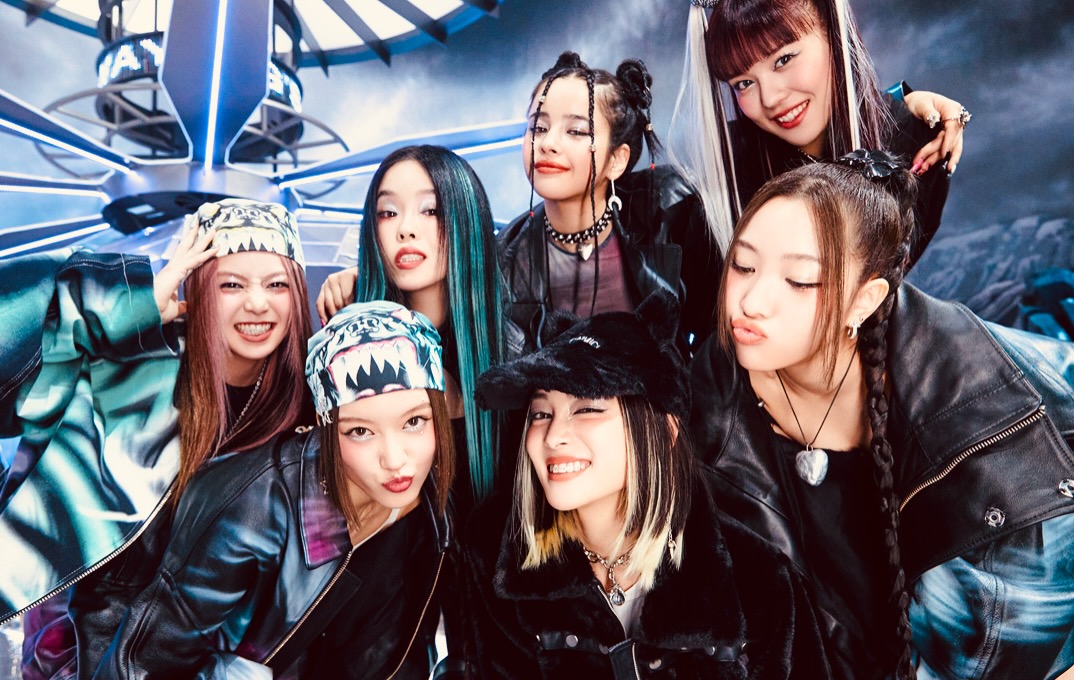YUKANA INOUE WRITES – On the surface, the recently debuted girl group XG appears to be like any other K-Pop girl group. Upon closer examination, however, one quickly finds that all seven members — Jurin, Chisa, Hinata, Juria, Cocona, Maya and Harvey — are Japanese and their production company, Xgalx, is a subsidiary of the Japanese entertainment company Avex.
Yet, they sing all of their songs entirely in English and ever since their debut in March 2022, they have been based in Korea, marketing themselves as an “global” girl group.
Confusing, isn’t it?
XG is just one example of a recent trend for companies outside of Korea attempting to platform their idol groups in Korea.
For instance, EVERGLOW is a group of Korean and Chinese girls that debuted in 2019, produced by the Chinese entertainment label Yuehua. The same company was also behind the five-member boy band Uniq who were popular between 2014 to 2018.
On the other hand, there are also “K-pop” groups that consists entirely of non-Korean members, but were trained and produced by Korean labels. One of the more successful groups being the Chinese boy band WayV, produced by one of the big four Korean labels SM Entertainment known for groups such as Aespa and NCT.
Similarly, much like XG, Nizi U is another group which is comprised of all Japanese members. They are produced by another one of the big four Korean entertainment companies, JYP Entertainment, that are known for groups such as Stray Kids and TWICE. As opposed to XG that is produced by a Japanese company and marketed in Korea, Nizi U is an attempt for a Korean label to see if the K-Pop formula works in the Japanese market — which has clearly been successful.
The definition of K-Pop had become increasingly ambiguous over the past couple of years and regardless of the group’s nationality, they have often proven to be successful. Yet, the political and cultural implications of such crossovers have been questioned by audiences, with some claiming that these foreign companies are merely exploiting the Korean market and its culture to advance the success of its groups.
Earlier last year in 2022, CEO of Avex Masato Matsuura came under fire for an anti-Korean comment he made during an interview. In a now deleted livestream, he claimed that XG was not K-Pop and that it’s more “American,” saying that the group merely “used Korean producers” to advance the success of the group.
Fans were upset over the comment, criticizing XG for playing up their non-existent connection with YG Entertainment — another one of the big four Korean labels. Others expressed the irony of Matsuura’s comment, given that all XG’s social media accounts are run by Koreans.
Since then, CEO of Xgalx and executive producer of XG, Simon Jakops has come out to issue a statement earlier this year in January. He cleared up misunderstandings over the nationality and affiliation of the group, stating that a diverse and multinational staffs participated in the inception of XG and that their ultimate goal was to “present XG’s music and performance to the public around the world without prejudices and regulations regarding region, language, etc.”
Simon Jakops stated that the intention behind all XG’s songs being in English was for them to be successful in the global market, given that English is the most widely spoken language in the world.
Regardless of fan-opinions on XG’s nationality and its presence in K-Pop, it is undeniable that XG popularity is on the rise. It will be interesting to observe the career trajectory of Japan’s hottest “K-pop” group as they go “into the galaxy, you know the vibes.” Up up and away?

